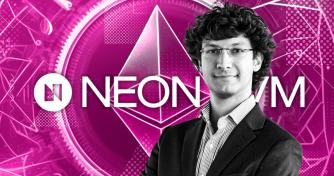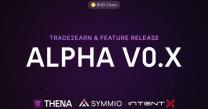 Vitalik Buterin stakes only a modest portion of Ethereum, here’s why
Vitalik Buterin stakes only a modest portion of Ethereum, here’s why Vitalik Buterin stakes only a modest portion of Ethereum, here’s why
The Ethereum co-founder said the complexity of multi-sig staking stops him from staking more ETH.

Cover art/illustration via CryptoSlate. Image includes combined content which may include AI-generated content.
Ethereum co-founder Vitalik Buterin stakes a small amount of his ETH due to concerns about security and the complexity of staying safe.
Speaking on the Bankless Podcast, Buterin said he doesn’t stake all his Ethereum, only “a fairly small portion,” because staking safely on the network requires multi-sig, which remains a tricky process.
“if you stake your ETH, the keys to access it have to be public on some system that’s online. For safety, it has to be a multi-sig, and multi-sigs for staking are still fairly difficult to set up. It gets complicated in a bunch of ways.”
Multi-sig refers to requiring more than one user to sign and authorize a transaction. Therefore, crypto assets remain secure even if a private key is compromised.
In 2021, Ethereum Foundation researcher Justin Drake said he doesn’t stake all his ETH. Explaining why, he used a sausage-making analogy, adding that rare, unpredictable events also influenced his decision.
“when you make the sausage, you know how it’s made, and there’s a bunch of tail risk that’s difficult to quantify.”
Input-Output CEO and Cardano founder Charles Hoskinson seized upon Buterin’s comments, saying he stakes all of his ADA – taking the opportunity to infer Ethereum is not “properly designed.”
“I had to listen to this a few times. I’m just at a loss for words. All of our Ada is staked. Guess what, that’s how it’s supposed to be for a properly designed Proof of Stake protocol.“
However, Max Radeleus, the co-Founder of INTU, a protocol that introduced dEOAs (decentralized externally owned accounts) at ETHDenver this year, argued that Buterin might be underestimating what’s possible with continued Ethereum innovation.
EOAs are the most basic type of Ethereum accounts using a public and private key pair. INTU introduced a cryptographic method to split private keys without needing a smart contract wallet, the kind of account likely referenced by Buterin when talking about multi-sigs.
“As Mr Buterin so succinctly highlights, secure solutions on chain are currently difficult; I mean if he has issues with it, who wouldn’t? However, we’re not done innovating on Ethereum yet! dEOAs make it simple to launch multi-party (MPC) accounts which solve many of Vitalik’s issues here, and just perhaps, this is what is needed for further staking adoption.”







































































